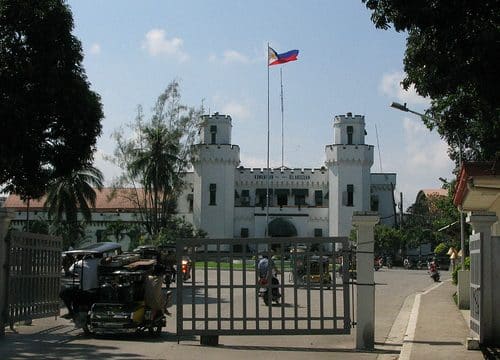
MANILA (UCAN): “Firstly, let us give the deceased their proper burial. Catholics or not, our faith teaches us that our bodies are the temples of the Holy Spirit. Secondly, I humbly appeal to the Bureau of Jail Management and Penology to please observe Catholic rituals in disposing of the dead bodies,” Bishop Joel Baylon, of the commission of Prison Pastoral Care of the Catholic Bishops’ Conference of the Philippines [CBCP] said.
The country’s bishops made their appeal as the authorities New Bilibid Prisons Cemetery in Muntinlupa City started the process of disposing of some 200 unclaimed bodies on November 25—60 being in the first batch—following an order from the Department of Health citing the health hazards entailed in keeping corpses in closed facilities.
“We need to dispatch the bodies according to the advisory of the Department of Health for the safety of our prison facilities. As much as we would like to wait for their loved ones to claim their bodies… but we cannot wait because we need to dispose of them for public health reasons,” Bureau of Corrections officer, Donald Worones, said.
There’s a stigma in every Filipino family to take care of someone who came from prison. If it’s difficult to reintegrate prisoners who are still alive, how much those who have died
Bishop Baylon
“We have been waiting for their families to reclaim the remains because some were already in their advanced state of decomposition and some were already mummified,” Worones added.
The Health Department gave a deadline for the corpses to be claimed but required the Bureau of Corrections to send out a notice to their families one last time.
“When a prisoner dies, we reach out to their relatives, or if from the provinces, they inform the superintendents of each camp to inform the relatives. If we have not heard from them, then we mark each body and we ready them for burial,” prison health officer, Clarence Salgado, explained.
The bishops sent priests to bless the bodies before they were interred. Their names were also remembered in Masses in several dioceses.
Bishop Baylon said that although even if their loved ones did not claim prisoners’ remains, the Catholic Church would always welcome them as members of the Church. He explained that many families intentionally abandoned them because they did not want to spend for the funeral of a former prisoner.
We have been waiting for their families to reclaim the remains because some were already in their advanced state of decomposition and some were already mummified
Donald Worones
“There’s a stigma in every Filipino family to take care of someone who came from prison. If it’s difficult to reintegrate prisoners who are still alive, how much those who have died?” the bishop added.
As we celebrate the 500 years of Christianity in the Philippines. The Chaplaincy to Filipino Migrants organises an on-line talk every Tuesday at 9.00pm. You can join us at:
https://www.Facebook.com/CFM-Gifted-to-give-101039001847033
The Department of Justice said that it would arrange for the bodies to be given proper burials consistent with the deceased’s religious beliefs.
“Our first job is to locate the families of the prisoner. Remember they’re cadavers of people who had families. Secondly, we assure that we will give them a proper burial,” Jesus Crispin Remulla, secretary for Justice, told reporters on November 24.
In 2020, the Bureau of Corrections recorded 1,082 deaths in all of its seven prisons and penal farms nationwide, up by 43.5 per cent from the previous year’s 754 deaths.
The number rose further in 2021, with the bureau recording 1,166 deaths among the 48,501 population that year—the highest in its history.










